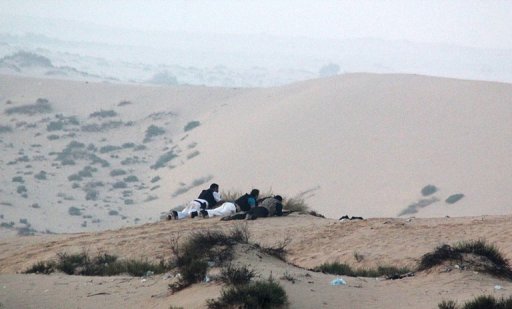American University in Cairo Press writers braved thunder storms and torrential rain yesterday to attend the AUC Press Author Day at the Cairo International Book Fair.
Held in the Naguib Mahfouz Pavilion, the event allowed readers to meet nearly 20 AUC-published authors including economist Galal Amin, Egyptologist Zahi Hawass and novelist Alaa El-Aswany.
Jill Kamil, a specialist in Egyptology and Coptic history, spoke to Daily News Egypt about her most recent book, “Labib Habachi: The Life and Work of an Egyptologist, published last year.
Born in a village near Mansoura at the turn of the 20th century, Habachi worked for the Egyptian Antiquities Service for over 30 years. Described by Kamil in her book as “unquestionably Egypt’s most productive and internationally recognized Egyptologist of the 20th century, he was also systematically marginalized by the local egyptology establishment.
“While he was recognized by international scholars of ancient history, he was a victim of social discrimination in Egypt because of his poor background. When Egypt took over the Antiquities Department, the staff appointed were foreign-educated Egyptologists while Habachi was just a simple, regular guy; he didn’t fit the image Egyptians wanted to present, Kamil told Daily News Egypt.
Habachi’s greatest discovery was the Heqaib Temple on Aswan’s Elephantine Island.
Heqaib, a semi-autonomous provincial official lived at the end of the Old Kingdom. Three centuries after he died, a cult grew around his legacy and the temple on Elephantine Island was built.
Despite the significance of this find, the manuscript Habachi submitted to the Antiquities Department was ignored for 20 years.
“He made his discovery at the wrong time. Post-revolution Egypt wasn’t interested in an ordinary nobleman who had been deified – it wasn’t considered suitable, Kamil explained.
Co-written with Emile Savage-Smith, German historian Peter Pormann’s book “Medieval Islamic Medicine describes the study of medicine in the Islamic world between 650 and 1500.
The book presents the development of medical practices, folkloric and magical medicine traditions popular at the time, and the huge influence that the discoveries made at this time had on modern medicine.
“Most of the medicine taught in universities is based on medieval Islamic medicine, Pormann told Daily News Egypt. “There was a real mixture of cultures during this period as well as an openness to others which produced innovation and progress, he explained.
Egyptian writer Hala El-Badry is the author of more than six novels. AUC Press translated her fourth book, “A Certain Woman, in 2004.
The 2001 novel deals with its female protagonist’s quest to overcome the self-imposed taboos surrounding sexuality, desire and love, to find fulfilment.
According to the AUC Press website, “a vociferous minority of male critics felt scandalized by [the novel], finding it unseemly that such issues should be raised by a woman.
The book nonetheless won the prize for best novel of 2001 at that year’s Cairo International Book Fair.
El-Badry, a member of the PEN organization, which supports writers’ freedom of expression, and the Egyptian opposition movement Writers and Artists for Change, told Daily News Egypt that while writers are subjected to occasional censorship, journalists in Egypt encounter far more obstacles.
“It is readers who censor themselves and reject the discussion of certain themes and ideas in writing, she told Daily News Egypt.
